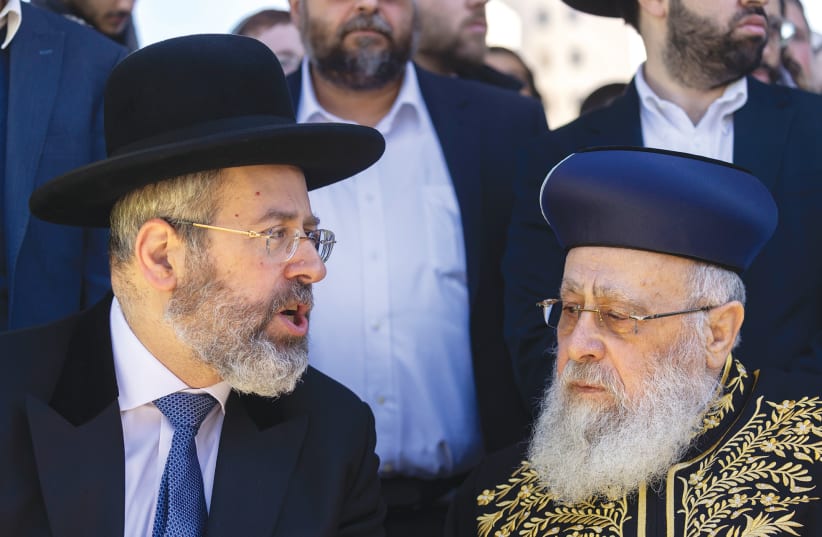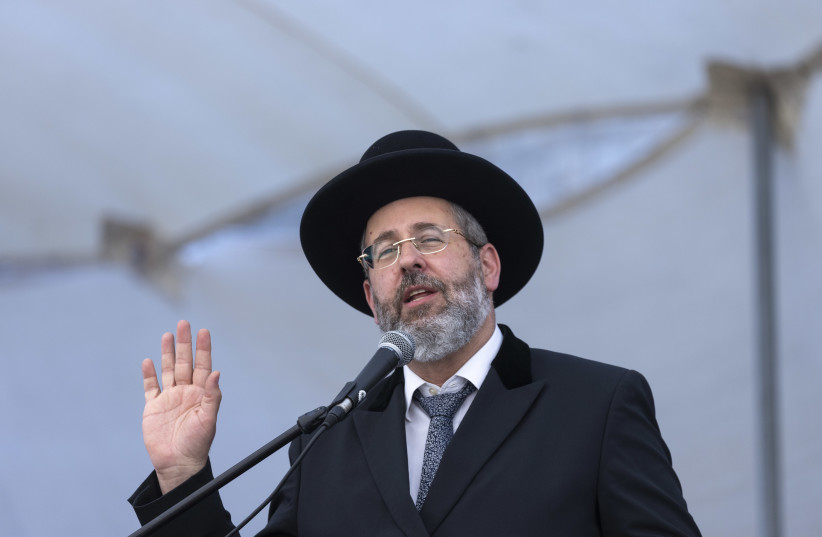With the elections for the Chief Rabbinate approaching and the Supreme Court mandating a response by June 26 regarding allegations of fixed elections for new rabbinical court judges, accusations of nepotism within the Israeli rabbinate are intensifying.
This practice of favoring relatives in professional or political appointments has long been contentious worldwide. Following the recent reports of corruption in the Transportation Ministry, it is now apparent that the rabbinate has become the center of these allegations. Nepotism within this institution has significant socio-political implications, especially following October 7.
The rabbinate serves as the central authority for marriage, conversion, and kosher certification in Israel. As such, appointments at the rabbinate wield considerable influence not only in religious matters but also in shaping societal norms and values. Allegations of nepotism within the rabbinate raise concerns about fairness, transparency, corruption, and the integrity of religious governance.
A prominent aspect of nepotism within the rabbinate is the prevalence of familial ties among its leadership and decision-makers. Rabbinical positions are often inherited or passed down within certain families, as evidenced by the surnames of the current chief rabbis and proposed candidates. This system, where lineage and kinship significantly influence professional advancement, deprives deserving candidates of opportunities based on their qualifications and competency.
Consider that at present, of the six proposed candidates for chief rabbi, three are children of former chief rabbis (of which two are brothers of present chief rabbis) and another is the brother of the head of the Shas party. This is also apparent in the candidates for rabbinical judges.
Nepotism in Israel's Rabbinate
Furthermore, the issue of nepotism in the rabbinate intersects with broader socio-political dynamics, particularly the influence of haredi (ultra-Orthodox) communities. Historically, haredi parties have played a pivotal role in coalition governments, leveraging their political clout to secure funding and support for their religious institutions, including the rabbinate.
This political influence has perpetuated a system of patronage where appointments are used as barter material, influencing government decisions across various sectors of Israeli life. It is a classic case of “You vote for my position in the economic, social, or political sphere, and I’ll back your candidates.”
The consequences of nepotism within the Israeli rabbinate extend beyond internal governance issues, impacting broader societal perceptions of religious authority and legitimacy and the entire Jewish narrative in Israel. When appointments are seen as influenced by familial connections rather than religious scholarship or ethical integrity, trust in the institution is further eroded, leading to public disillusionment and disengagement.
Addressing nepotism within the rabbinate requires tackling both structural and cultural factors. Implementing transparent, merit-based selection processes for rabbinical appointments can help mitigate perceptions of favoritism and ensure that positions are filled based on qualifications and expertise rather than familial ties.Additionally, fostering greater diversity within the rabbinate, including representation from various religious denominations and communities, can promote inclusivity and reduce the concentration of power within specific groups.
Furthermore, promoting accountability and oversight mechanisms within the rabbinate can help prevent the abuse of power and ensure that decisions serve the broader Jewish community’s best interests. Merely criticizing the appointment of chief rabbis with familial ties or seeking Supreme Court intervention is insufficient.
Israel needs to strengthen regulatory frameworks, enhance transparency in decision-making processes, and empower external bodies to investigate allegations of misconduct or nepotism.
Only by addressing the underlying structural and cultural factors contributing to nepotism can Israel strive toward a more inclusive and equitable religious institution that upholds the principles of fairness, integrity, and meritocracy.
The writer, a rabbi, is the founder of ITIM: The Jewish Life Advocacy Center.

